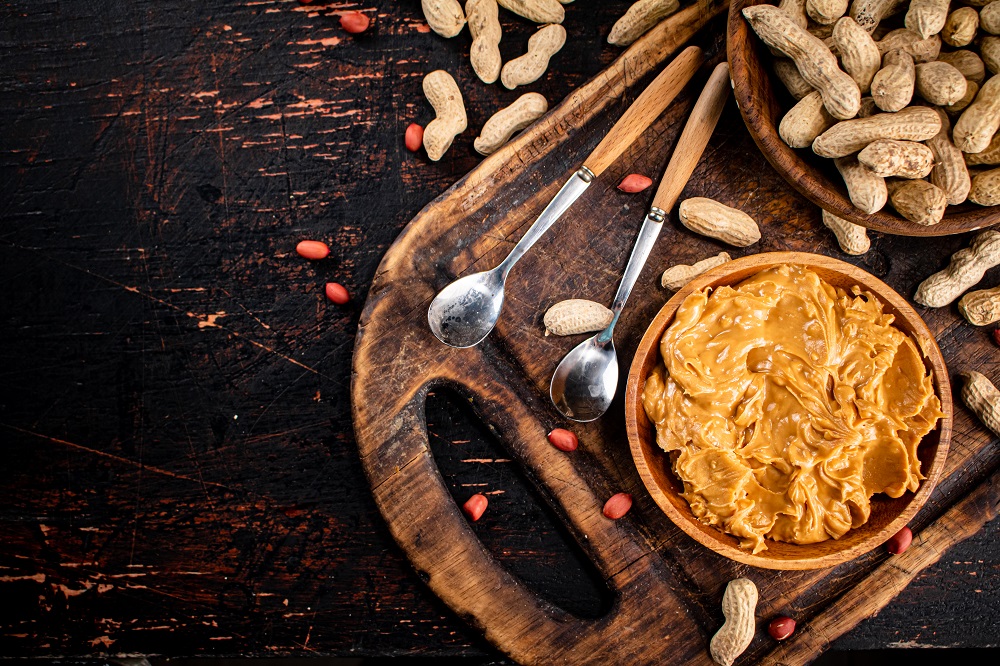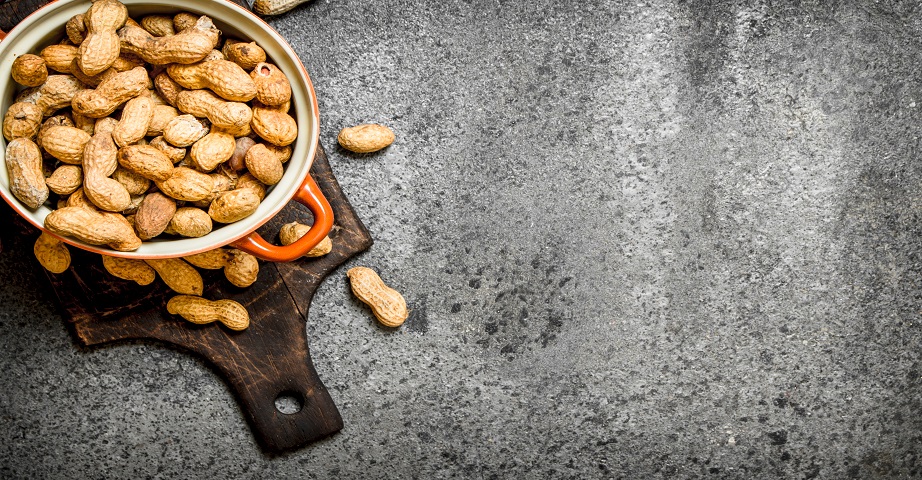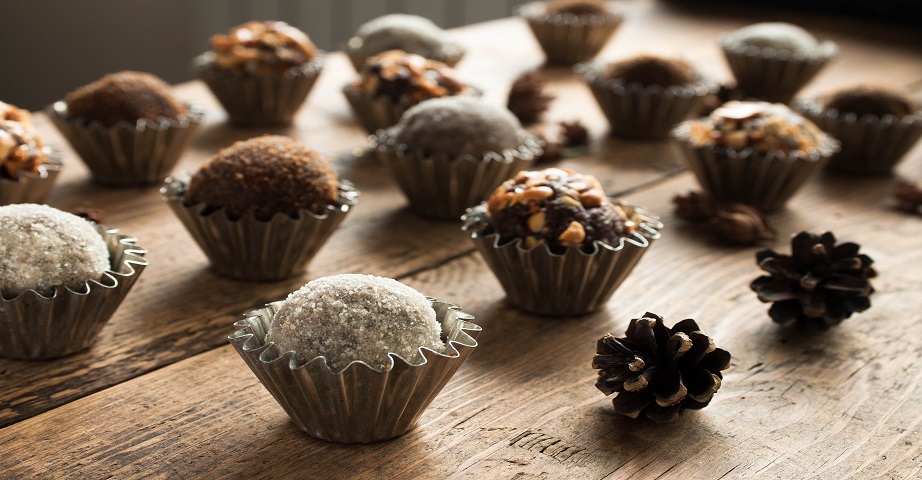Peanuts - a valuable snack or an allergenic ingredient that is better to avoid?

Peanuts, also called groundnuts or monkey nuts, are unusual edible seeds from the Fabaceae family. It is a high-energy product, widely used all over the world - peanuts are used both as an addition to sweet dishes and for savoury dishes.
What effect can peanuts have on the human body? What dishes and snacks can be prepared with their participation? Are peanuts healthy?
What are peanuts?
Peanuts, also known as groundnuts or monkey nuts, are edible seeds derived from a plant known as groundnut (Arachis hypogaea L.). Contrary to what their name suggests, peanuts are not nuts at all. In fact, peanuts are peas from the Fabaceae family, which belongs to the legumes. However, the properties and chemical composition of the product are similar to traditional nuts.
Peanuts are not found in the wild in nature, but have been grown by man. It is believed that peanuts comes from Peru, where the ancient Incas cultivated them more than 3,500 years ago. Peanuts were then used, among others, to bury the dead - they were to provide food in the afterlife. From Peru, the peanuts probably came to Europe with the help of Spanish explorers, and then spread to Asia and Africa. In some regions of Africa to this day there is a view that peanuts have souls. Currently, however, the largest importers of peanuts are China, the United States, as well as India and Africa.
Have you ever wondered how peanuts grow? Perhaps it will surprise you, but peanuts, like potatoes, grow in the ground.
Arachis hypogaea is an annual plant that grows to a height of 50-60cm. It has opposite and pinnate leaves, while on its shoots can appear single, yellow flowers. The shank of the flower after finish blossoming is elongated and directed to down, and the seedpod "enters" into the ground. Under the ground, the seedpod ripens at a depth of 5-8 cm, what the result are seeds, called peanuts. Peanuts are not harvested, but dug. In addition, the plant is distinguished by rapid ripening - from seeding peanuts to crops, it takes about 130 days.
Recommended products with peanuts
Peanuts - nutritional values
Peanuts are a product of high energy - 100 g of raw peanuts contain 567 kcal. Thus, one handful of the product can provide the body with about 170 kcal. Monkey nuts also have a low glycemic index (IG=14) and a low glycemic load (LG= 0.68). At the same time, they are a good source of protein, fat, dietary fiber and some minerals.
Because peanuts are actually legumes, they have a higher protein content than typical nuts. At the same time, they are rich in monounsaturated and polyunsaturated fatty acids and have no cholesterol.
Peanuts contain significant amounts of polyphenolic compounds and thus have antioxidant activity. In addition, they are rich in minerals such as zinc, magnesium, copper, manganese, selenium, potassium and iron. In peanuts can be also found B vitamins and vitamin E. Moreover, monkey nuts contain phytosterols, isoflavones and significant amounts of arginine.
Properties of peanuts
Groundnuts can have a beneficial effect on the circulatory system - frequent consumption of peanuts can contribute to the increase in the HDL fraction of cholesterol, called "good cholesterol". The presence of peanuts in the diet may also affect the reduction of blood pressure, as well as reduce the risk of developing type II diabetes, by affecting lipid and sugar levels in the blood and supporting glycemic control. In addition, the product may contribute to reducing the risk of gallstones.
In addition, the inclusion even if one handful of peanuts in the daily menu can significantly affect the intestinal microbiota, supporting the health and condition of the digestive system.
Due to the presence of valuable vitamins in peanuts, the product can also take care of the proper functioning of the nervous system, supporting the production of neurotransmitters, such as serotonin, as well as taking part in the conduction of nerve impulses.
Peanuts, although contain significant amounts of calories, are very filling, so their inclusion in the diet can help reduce snacking between meals. In addition, due to the content of substances with antioxidant properties, peanuts can help fight free radicals and eliminate reactive oxygen species, while reducing oxidative stress and contributing to the delay of aging processes.
As we have already mentioned, peanuts contain significant amounts of the amino acid, such as arginine, which is, among others, a precursor of nitric oxide. Thus, the inclusion of groundnuts in the diet can positively affect muscle mass, as well as tissue regeneration and protein synthesis. At the same time, arginine can improve blood flow and stimulate hormone production and improve psychomotor performance and dilate blood vessels, which can have a beneficial effect on sexual performance.
Method of processing and nutritional value - which peanuts to choose?
The nutritional value of peanuts depends on the processing they have undergone. The most nutritional value contains raw peanuts, preferably unpeeled from the peel, because it is also a source of valuable ingredients.
During thermal processing, as a result of the frying or blanching process, monkey nuts lose a significant part of their properties - the content of polyphenols is reduced, and thus the antioxidant effect of peanuts. In addition, thermal processing contributes to the reduction of vitamins and minerals such as iron, selenium, zinc or magnesium.
Commonly available on the market are also heavily seasoned, salted or surrounded by coating, peanuts. These types of products provide the body with significant amounts of unnecessary and harmful substances. Groundnuts in coating is a wealth of trans fats that adversely affect the health and work of the human body. In turn, salted nuts provide the body with exorbitant amounts of sodium chloride. Thus, their regular consumption can contribute to an increased risk of developing hypertension and cardiovascular disease.
Therefore, the best choice will be raw peanuts, in turn the most devoid of valuable ingredients option - fried monkey nuts.

How and for what can peanuts be used?
Peanuts are the basic ingredient of the world-famous peanut butter, which can be used as an addition to cakes and desserts, as well as a spread for pancakes or sandwiches. At the same time, peanuts are often used for the production of sweets or nut pastes, as well as consumed as a snack, in roasted or salted form.
Peanuts are a comprehensive product that is widely used in the kitchen. Monkey nuts perfectly fit both sweet and savoury dishes. They can be an addition to oatmeal, muesli, yogurt or salad, as well as baked goods and exquisite dinners. Peanuts are most often used in Thai, Chinese and Vietnamese cuisine, but more and more often they also occur in dishes from other countries.
Fit recipes with peanuts
Peanuts are a high-energy product that should not be consumed in excess, as it can contribute to a positive energy balance and weight gain. However, peanuts used in moderation can have a positive effect on health and provide the body with many valuable nutrients. It's time to get to know some recipes for healthy dishes and snacks with peanuts!
Aubergine and peanut paste
The perfect addition to sandwiches or vegetables cut into bars. And although it sounds a bit strange, it tastes really good!
Necessary ingredients:
- 1 aubergine,
- 30 g of unsalted peanuts,
- 50 g of peanut butter 100% nuts without salt,
- 1 clove of garlic,
- 1 spoon of rapeseed oil,
- favourite spices.
Method of preparation: Wash aubergine and cut in half. Spread thinly with rapeseed oil, put on a baking sheet covered with baking paper and bake in 180 degrees for about 45 minutes. When the aubergine is soft, remove it from the oven and leave to cool. From the cooled product, core all the pulp and put into a bowl. Add peanut butter and finely chopped peanuts and garlic and your favourite spices. Blend the whole into a smooth mass. Season to taste if necessary.
Pasta with chicken, spinach and peanuts
Peanuts for savoury, or dinner with the addition of valuable peanuts.
Necessary ingredients:
- about 100 g of your favourite wholemeal pasta,
- about 50 g of frozen spinach,
- 1 onion,
- 1 clove of garlic,
- one handful of unsalted peanuts,
- 2 spoons of rapeseed oil,
- 100 g of chicken breast,
- favourite spices.
Method of preparation: Cook the pasta according to the directions on the package. Wash chicken breast, dry and cut into cubes. Heat the pan with the addition of rapeseed oil and put on it chopped onion and finely chopped garlic. Then put the seasoned chicken in the pan. Fry until the breast is soft and ready. Add spinach to fried chicken and mix thoroughly, then fry for a while. At the end of frying into a pan add peanuts and mix thoroughly all products. Strain the pasta, put on plates and put the products from the pan on top.
Power balls with peanut butter
Time for a decadent dessert, or power balls with peanut butter - of course unsalted, which contains 100% nuts. A sweet moment of pleasure and the battle for the last balls among the household - guaranteed!
Necessary ingredients:
- 200 g of dried dates,
- 120 g of oatmeal,
- 100 g of peanut butter 100% nuts without salt,
- 20 g of unsalted peanuts,
- one spoonful of unsweetened cocoa,
- 1 spoon of rapeseed oil.
Method of preparation: Dates soak in water all night. When they soften, strain them and blend. Add oil, oatmeal and peanut butter to the blended dates and mix all the ingredients. Put the resulting mass in the refrigerator for about 20 minutes. After this time, form balls the size of a walnut. Roll them in cocoa and finely chopped peanuts.

Peanut allergy
Peanuts are classified as highly allergenic products. This is due to the fact that they contain significant amounts of proteins - from 32 proteins, as many as 18 fractions may have allergenic properties.
Therefore, monkey nuts should not be used by people allergic to this product. Allergy to peanuts can manifest itself, among others, with urticaria, vomiting, asthma, bronchospasm, edema and even anaphylactic shock.
Unfortunately, there is no effective method of dealing with peanut allergy. The best solution is to give up products containing allergenic ingredients.
Are peanuts healthy?
Peanuts are considered a valuable product that is worth including in the diet. They are a precious source of protein and fatty acids, and also contain significant amounts of minerals and vitamins. When consumed regularly in moderate amounts, they can have a beneficial effect on the body.
However, it should not consume peanuts in excess - it should be remembered that despite many valuable properties, it is a high-energy product that can contribute to weight gain.
In addition, it is always worth choosing peanuts from good sources - there may be aflatoxin in badly stored peanuts, which is considered a carcinogenic substance that is dangerous to health.
Bibliography:
- https://www.ncbi.nlm.nih.gov/pmc/articles/PMC4711439/
- https://pubmed.ncbi.nlm.nih.gov/28662347/
- https://pubmed.ncbi.nlm.nih.gov/33471083/
- https://pubmed.ncbi.nlm.nih.gov/30638042/
- https://www.ptfarm.pl/wydawnictwa/czasopisma/bromatologia-i-chemia-toksykologiczna/117/-/13889
- https://pubmed.ncbi.nlm.nih.gov/36067589/

